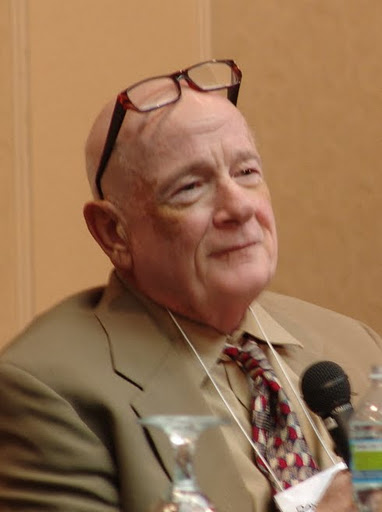30 Years of NDE Research: an interview with Raymond Moody
What do you recall about those early meetings that led to the founding of IANDS?
My friend John Audette was the conceiver, originator, organizer and founder of IANDS. I met John in February of 1974, when he asked me to lecture on my work to the Sociology Club at Augusta College in Georgia. Due to his organizing skills, the auditorium was packed for my lecture. He was obviously touched by my report, and we became good friends. Several years later, he had the idea of forming the group which became IANDS. He asked me to endorse his project, which I did.
John traveled around the country on his own initiative. He met the various medical doctors and psychologists who were then waking up to the extent of this amazing phenomenon we call the near-death experience. He arranged for us to all get together in Charlottesville, Virginia, where I lived. My remembrance is that the founding of the group was in November of 1977 or 1978. We met in a room at the Baptist Student Center in Charlottesville. Present at the initial meeting were John Audette, Ken Ring, Mike Sabom, Sarah Kreutziger, Beverly Belk, Bruce Greyson, John Egle, my wife Louise, and myself. There was also a psychology professor, whose name I forget. He didn't seem to enjoy our company, and kept dozing off. He decided not to stay with us after that. There may have been other attendees, as well. I just don't remember. We spent the day conceptualizing. I made it clear from the beginning that I didn't want any sort of organizing, administrative, or leadership role in the group. I am not a joiner or social person, and I like to work by myself. That day I just sat there, rocking in my rocking chair, contributing some ideas and telling stories about my imaginary town.
So make no mistake about it: John Audette was the originator and founder of IANDS. For a long time he kept the organization going on his own determination and resources. Later on there was a meeting at my farm in Highland County, Virginia. That came about as a reunion of the original participants. The organization had already been running for a while when we met at the farm.
I cannot really say how the organization is different today from how I envisioned it then. To tell the truth, I don't think I envisioned it in any particular way at all, even then. I was happy then and still am — that people would spend time promoting interest in this inherently fascinating dimension of human experience.
What do you find most interesting in the field of NDE studies? How have your family and friends reacted to your interest in this field? How have you integrated what you have learned from NDEs into your religious views, your scientific views, your view of reality?
To me the most fascinating aspect of these experiences is their potential bearing on the biggest question of human existence: Is there an afterlife? I was not exposed to religion as a child, and the first I ever thought about life after death was in reading Plato as a first-year college student. As I said at the beginning of Life After Life, my background interests were in logic, philosophy of language, and ancient Greek philosophy. I also emphasized near the beginning that I was primarily discussing narratives, or verbal accounts. And I emphasized that these narratives were not "evidence," especially not "scientific" evidence of an afterlife. Regrettably, all those vital facts got overlooked in the enormous wave of popular and professional interest in these experiences that swept the world after Life After Life was published in 1975. The afterlife remains the most important philosophical question. But it is not yet a scientific question. I have kept insisting on this, because it is a truly crucial point. Thus far, the question of an afterlife is still a conceptual question. That is, it requires logical reasoning about concepts, not scientific methods. I believe that people will be waking up to this pretty soon and it will transform the landscape of rational study of life after death.


